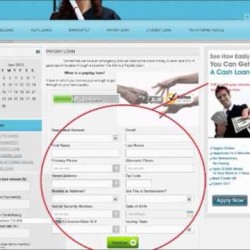Learn The Best Steps To Take To Get Credit Cards
Posted at by CreditWiz on category Credit CardsCredit cards help individuals manage their money and build a good credit history. Helping your credit score is just one of the many benefits of a properly handled credit card. The following contains advice on credit cards that can help people get better at using their cards, so they don’t damage their credit score and get into debt.
Read the fine print. Get every last detail from anyone who is offering you a credit card. Details like the rate of interest you will have to pay often go unnoticed, then you will end up paying a very high fee. Research extra fees, as well as grace periods.
Check your balance carefully when your statement arrives. It is also important to know your credit limits. If you go over that limit, you are going to pay more fees than you realize. If fees are assessed, it will take a longer period of time to pay off the balance.
Paying the credit card account by its due date is very important. You may have to pay large fees if you ignore the due date on your credit card statement. Also, many creditors will increase your interest rates costing you even more money in the future.
Don’t sign up for a credit card if you have not taken the time to read all of its terms and conditions. It is possible to discover rates that are higher than you expected. The credit card policy should be read and understood before you use the card.
The signature strips on the back of your new credit cards should be signed as soon as you receive them. Too many consumers forget this important step, and their credit cards are that much more at risk of theft. Many vendors now require cashiers to verify signature matches so your card can be safe.
Select a password for your card that’s tough to identify for someone else. Using something familiar, such as your birth date, middle name or your child’s name, is a big mistake since this information is readily available.
Some people think that avoiding credit cards altogether will help their credit because they won’t have any debt. It’s important use one credit card, at least, in order for you to build a credit history. Use the card, and pay it in full every month. If you have no credit at all, your credit score remains low. This will impact you in the future.
See if your credit card issuer is willing to lower your interest rate. If you have a positive credit history with the company, they may be willing to reduce the interest they are charging you. It doesn’t cost you a penny to ask, but it can save you a lot of money.
It is important that you understand all the new laws governing credit cards. Credit card issuers may not assess retroactive interest rate hikes, as an example. Double-cycle billing is something that is also not allowed. Educate yourself about credit card laws. Two primary changes that have occurred in recent years involve the Fair Credit Billing Act and the CARD Act.
Never lie about your income to get a higher limit on a credit card. Some companies do not verify your income and they will give you a card with a higher limit, which may result in you charging more than you can afford to pay back.
Discuss your interest rate with your credit card company. If you contact the company directly, you could end up bartering your way to lower rates every month. You may have a good chance to get your Annual Percentage Rate (APR) lowered if make sure you make timely payments, and have a good track record.
As this article said in the beginning, credit cards are great at helping one deal with their credit and can be beneficial. Fully understanding the terms and conditions of various credit cards is the best way to make an educated choice when selecting a credit card provider. Knowing what to expect from having a credit card will help you make better choices.
